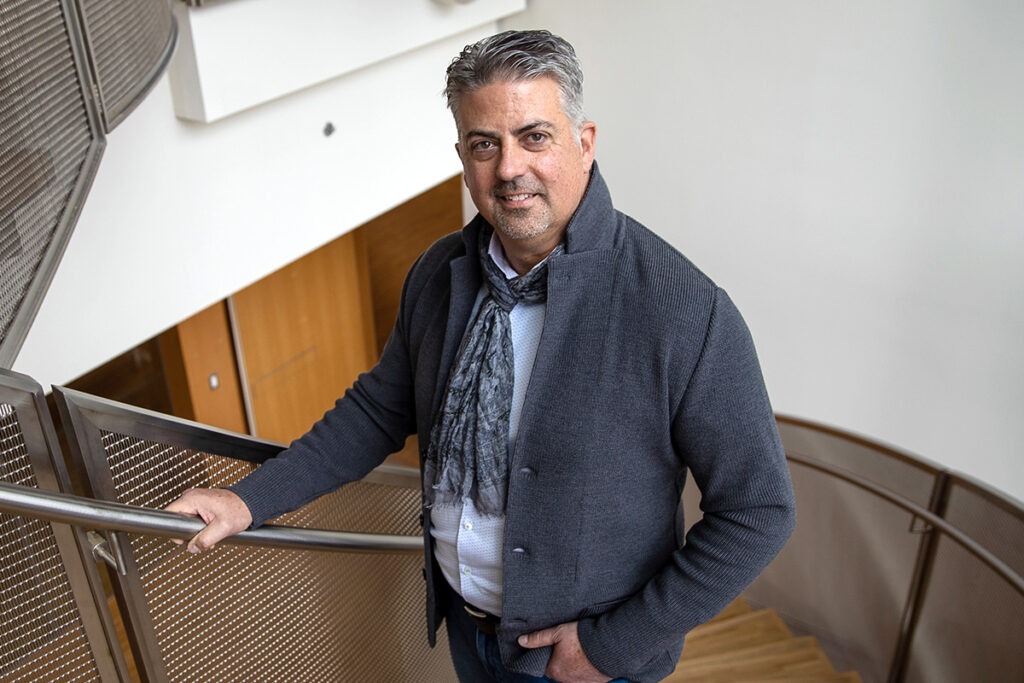Dual HIV-Syphilis rapid test approved for use in Canada
Clinical trial led by University of Alberta and Unity Health Toronto paves way for approval
Federal regulators have approved the licensure of an all-in-one rapid device that allows Canadians to simultaneously be tested for HIV and syphilis. Canada is the first country to approve and implement a dual-target device in North America that can produce results in as little as 60 seconds.
The approval was made possible, in part, by the results of a two-year clinical trial led by researchers at the University of Alberta and St. Michael’s Hospital, a site of Unity Health Toronto. The results were included as part of the device manufacturer’s submission to Health Canada and were necessary for the regulators’ review and approval.
A recent report by the Public Health Agency of Canada showed spiking rates of syphilis in the country, primarily among young women. From 2017 to 2021, rates of syphilis among females increased by 729 per cent, compared with 96 per cent among males. Syphilis infection can increase the risk of HIV acquisition and transmission, and co-infection creates a high risk of neurological problems. Cases of congenital syphilis – which is present at birth – are at crisis levels for young mothers, particularly those from persons of First Nations ethnicity. Ninety-six cases of congenital syphilis were reported in 2021, compared with seven cases in 2017.

“We need urgent actions to mobilize testing, treatment and connections to care for syphilis and HIV that are culturally appropriate, and that can reach and meet people where they are. They won’t come to us because the health and public health system has failed them – we need to go to them,” says Dr. Sean B. Rourke, a scientist at MAP Centre for Urban Health Solutions, a world-leading research centre housed at St. Michael’s Hospital, and the Director of REACH Nexus, a national research group working on how to address access and treatment for HIV, Hepatitis C and other sexually transmitted and blood-borne infections.
Rourke spearheaded the cross-Canada clinical trial which evaluated and proved the accuracy of HIV-self tests. Health Canada approved the tests for use in November 2020 based on the results of the trial.
The Point of care Tests for Syphilis and HIV (PoSH) Study launched in August 2020 and analyzed two different test devices among over 1,500 participants in clinical settings in Edmonton and northern Alberta. The study found both devices to be 100 per cent accurate in identifying HIV infection, and more than 98 per cent accurate in detecting active syphilis. Both test kits provide a test result in under five minutes using a fingerstick blood specimen.
Among the study participants, 24 tested positive for HIV on both devices and were confirmed by a lab test – four of those were new diagnoses. Acting on the device’s instantaneous nature, connecting participants to care and early treatment was a key priority of the study. Of the 20 people previously diagnosed with HIV, nine were on antiretroviral therapy, and all 24 participants were linked or relinked to care. There were 202 cases of infectious syphilis and the majority (87.4 per cent) were treated immediately following point of care test positive results. An additional 32 of 34 (94.1 per cent) participants with infectious syphilis who did not receive treatment at the test visit were treated within a median of four days.

“These extremely rapid point of care tests for the diagnosis of syphilis and HIV are much needed and a game changer for Canada. We were able to save costs associated with an additional clinic visit, reducing the number of cases lost to follow up, and prevent ongoing disease transmission,” says Dr. Ameeta Singh, the study’s principal investigator and an infectious disease physician with the University of Alberta.
Health Canada is approving the INSTI® Multiplex HIV-1/2 Syphilis Antibody Test, which is manufactured by bioLytical Laboratories Inc. in British Columbia. To do the test, a health provider obtains a fingerstick blood specimen, places a single drop of blood with the materials provided in the kit, follows the simple procedure instructions provided in the package, and reads the result in as little as one minute. The health provider can then offer treatment or linkage to care based on the test result. In February 2023, a dual-target device that produces results in 15 minutes was approved in the United States.
The study was jointly funded by Canadian Institutes of Health Research (CIHR) Centre for REACH Nexus at MAP St. Michael’s Hospital, Canadian Foundation for AIDS Research (CANFAR), Indigenous Services Canada, Alberta Health and Alberta Health Services.
About St. Michael’s Hospital
St. Michael’s Hospital provides compassionate care to all who enter its doors. The hospital also provides outstanding medical education to future health care professionals in more than 27 academic disciplines. Critical care and trauma, heart disease, neurosurgery, diabetes, cancer care, care of the homeless and global health are among the Hospital’s recognized areas of expertise. Through the Keenan Research Centre and the Li Ka Shing International Healthcare Education Centre, which make up the Li Ka Shing Knowledge Institute, research and education at St. Michael’s Hospital are recognized and make an impact around the world. Founded in 1892, the hospital is fully affiliated with the University of Toronto.
About Unity Health Toronto
Unity Health Toronto, comprised of Providence Healthcare, St. Joseph’s Health Centre and St. Michael’s Hospital, works to advance the health of everyone in our urban communities and beyond. Our health network serves patients, residents and clients across the full spectrum of care, spanning primary care, secondary community care, tertiary and quaternary care services to post-acute through rehabilitation, palliative care and long-term care, while investing in world-class research and education. For more information, visit www.unityhealth.to.
About the University of Alberta
The University of Alberta in Edmonton is one of the top teaching and research universities in Canada, with an international reputation for excellence across the humanities, sciences, creative arts, business, engineering and health sciences. The university and its people remain dedicated to the promise made in 1908 by founding president Henry Marshall Tory that knowledge shall be used for “uplifting the whole people.” www.ualberta.ca
